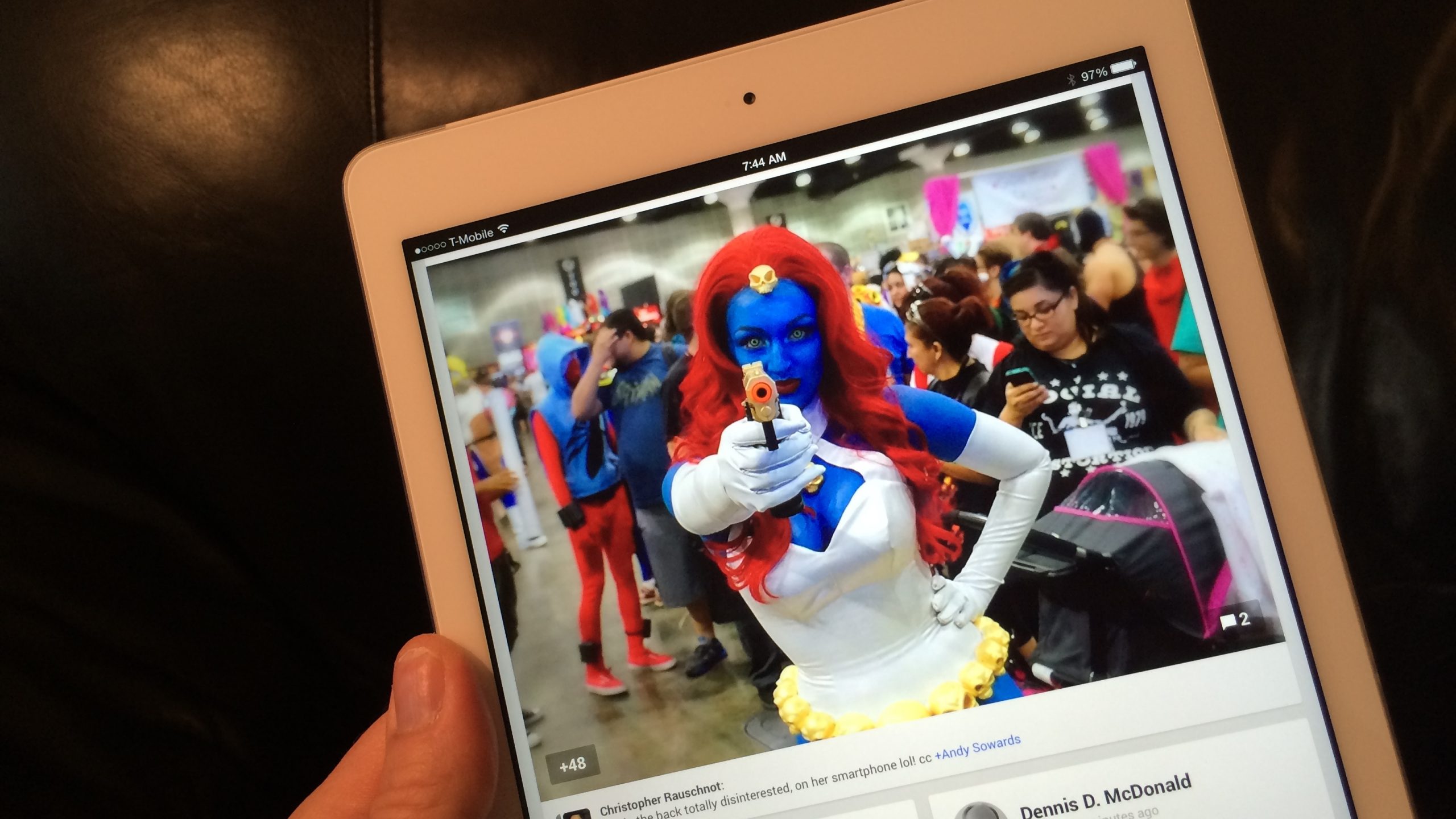
Apple iPad Air first-impressions review
Sometimes there is revolution in evolution. That's my surprising reaction to iPad Air, which Apple started selling on November 1. This is simply the best tablet I have ever used. Period. The fruit-logo company wisely chose to resist reinventing the wheel and build a vehicle around four instead.
For people who complain -- and there are many -- that Apple's newest 9.7-inch tab shows waning innovation, let me correct the record. You are oh-so wrong. iPad Air is an amazingly refined piece of art -- like a sculpture chiseled to perfection. iPad 3 and 4 are unpolished bricks by comparison. More importantly, anyone looking for a tablet to largely, or completely, replace a Windows PC or Mac, Air is it.
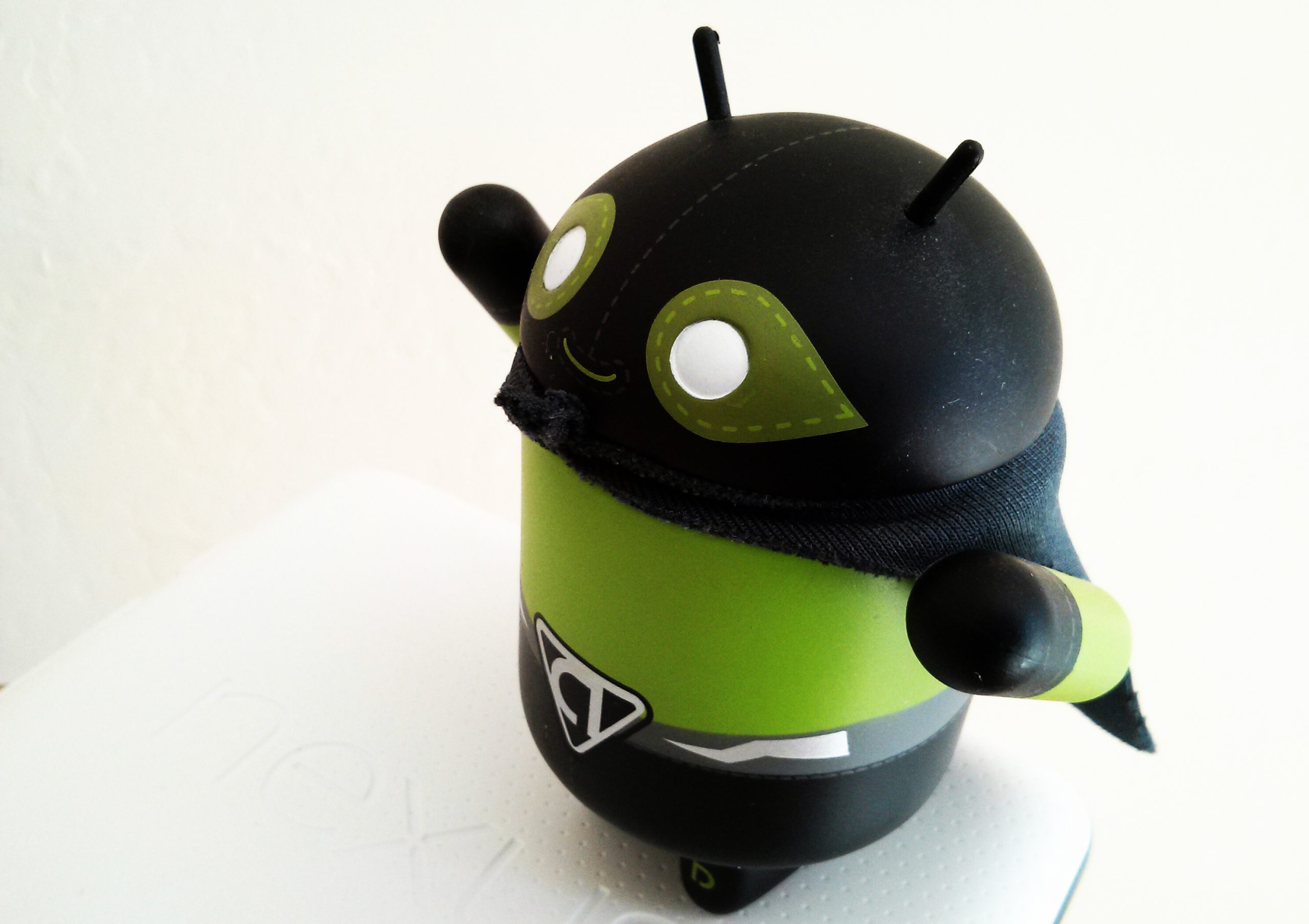
Jelly Bean surges past 50 percent Android market share
Android has long been blamed for its fragmentation issues, with many pundits pointing out to the low adoption levels of the latest distributions as the main culprit. While this problem has yet to be resolved due to the nature of the operating system, it is much improved today as the Jelly Bean branch is now powering most Android smartphones and tablets.
Based on the number of devices accessing Google Play in the seven days ending November 1, Jelly Bean's market share in the Android realm is now at a dominating 52.1 percent. Combined, its three iterations have a higher distribution level than Ice Cream Sandwich and Gingerbread put together, which is a first for the green droid landscape.

The most popular stories on BetaNews this past week -- October 27-November 2
This week Google put an end to all the speculation and finally launched not only the Nexus 5 but also the new version of Android -- KitKat. There were no great surprises as there had been so many leaks prior to launch that we knew pretty much everything there was to know, but it was good have the rumors confirmed. Expect a full review in the very near future. The Nexus 5 comes with KitKat preinstalled, but it will also be available as an upgrade for a number of other handsets. As it this wasn't quite enough for Google, the company also donated 17,000 Nexus 7s to communities affected by Hurricane Sandy.
After the recent announcement, the iPad Air went on sale, and Logitech was ready with a series of cases.
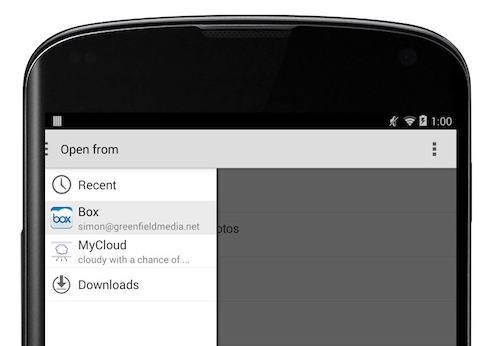
Box jumps on the KitKat bandwagon
Yesterday Google, after much teasing, made available both the Nexus 5 and Android 4.4, known as KitKat. The device seems to be an early hit as both the black and white 32 GB versions, as well as the white 16 GB model are now listing as two-to-three weeks away from being available. Meanwhile, the black colored low-end model is simply "out of stock". KitKat is set to arrive on other Android devices soon.
Cloud Storage service Box, is one of the first services ready to take advantage of the updated mobile OS. "Android now allows us to blend Box seamlessly with all your other apps that work with files", the company announces.
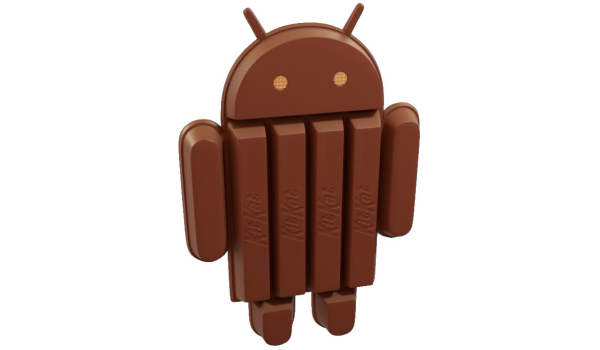
Which Android smartphones and tablets will get the KitKat upgrade?
After a long string of leaks and rumors, Google has officially launched Android 4.4 KitKat. The new mobile operating system, that has debuted alongside the Nexus 5, focuses on polishing the overall user experience, adding new features and improvements aimed at both entry-level and high-end devices. As usual, the big question is: When will your smartphone and/or tablet get the upgrade?
Google was among the first companies to reveal its plans for the upgrade. The search giant has announced that Android 4.4 KitKat will soon be available for the Nexus 4, Nexus 7 and Nexus 10, as well as the Google Play editions of the HTC One and Samsung Galaxy S4 in the following weeks.

Android 4.4 alert! Google takes the wrapper off KitKat
Just in time for Hallowe'en, Google takes us all out of our misery and officially launches Android 4.4 -- or KitKat as it is rather sweetly known. As with the Nexus 5, we have known pretty much what to expect from KitKat for a little while now. Google's blog post heralding the arrival of the latest version of the OS is a little understated and doesn't give much away.
One thing is particularly interesting. Rather than blowing its own trumpet and boasting about rafts of new features -- although this will probably follow -- Google has chosen to highlight the fact that Android 4.4 can run comfortably on devices with as little as 512MB RAM. The blog post points out that it is not just the operating system that has been put on a diet (ironic when you consider the origins of the name) but all Google services such as YouTube and Chrome.
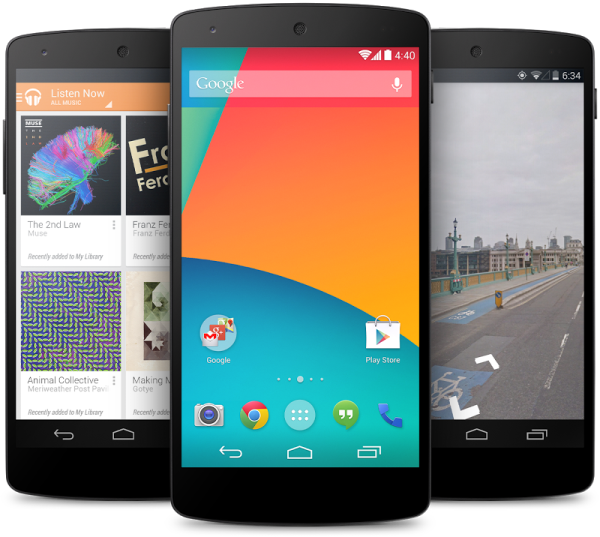
Google officially announces the Nexus 5 -- launch date: now!
Ending months of rumors and speculation, Google puts all of our minds at rest and announces that the Nexus 5 not only exists (as if we didn’t already know following all of the leaked images!) but is launching now.
It does seem like an age since we first (apparently) caught a glimpse of this phone in a Nexus 7 video, but now we know it to be true. The Nexus 5 is here, and it looks like it's everything we could have hoped it would be.

I hate to sound like an Apple apologist, but...
Google groupies make too much of third quarter tablet shipment estimates released yesterday. By IDC's reckoning, Apple's global share fell from 40.2 percent to 29.6 percent year over year. Meanwhile, Samsung soared from 12.4 percent to 20.4 percent share. The whole Android market grew at iPad's expense -- that's the popular contention smirked across the InterWebs. Yeah, right.
Apple apologists are quick to give the money rebuttal whenever market share tides turn against the products -- that the fruit-logo company earns more per device than rivals, sometimes all of them combined. The revenue rebuttal is exhausting for being so predictable but often also it's right and no truer than the tablet market. Q3 share numbers make lots of sense behind CEO Tim Cook's shocking decision to raise iPad mini 2 prices by $70 over the original -- that's about 22 percent. Profit share is his priority.
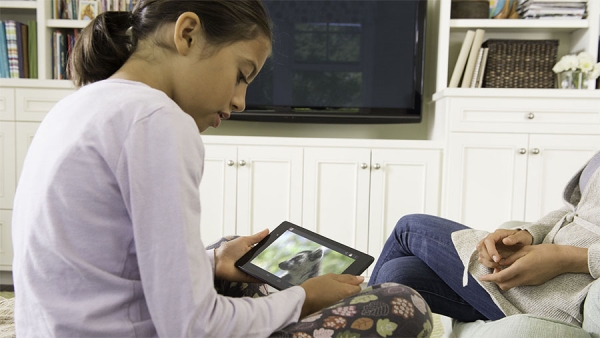
Google donates 17,000 Nexus 7s to Hurricane Sandy communities
It may be a year since Sandy struck, but the effects of the storms are still being felt. To mark the anniversary, Google is donating 17,000 Nexus 7 tablets to communities still feeling the impact of the hurricane. The devices, worth a total of $2.7 million, have been donated to community centers, libraries and other centers in the affected areas in New York.
The tablets were donated to the non-for-profit service the New York State Community Action Association who worked with the Port Authority of New York and New Jersey to store and distribute the devices. The Nexus 7s will be used in a number of ways including being loaned out as e-readers in areas where libraries are yet to re-open.
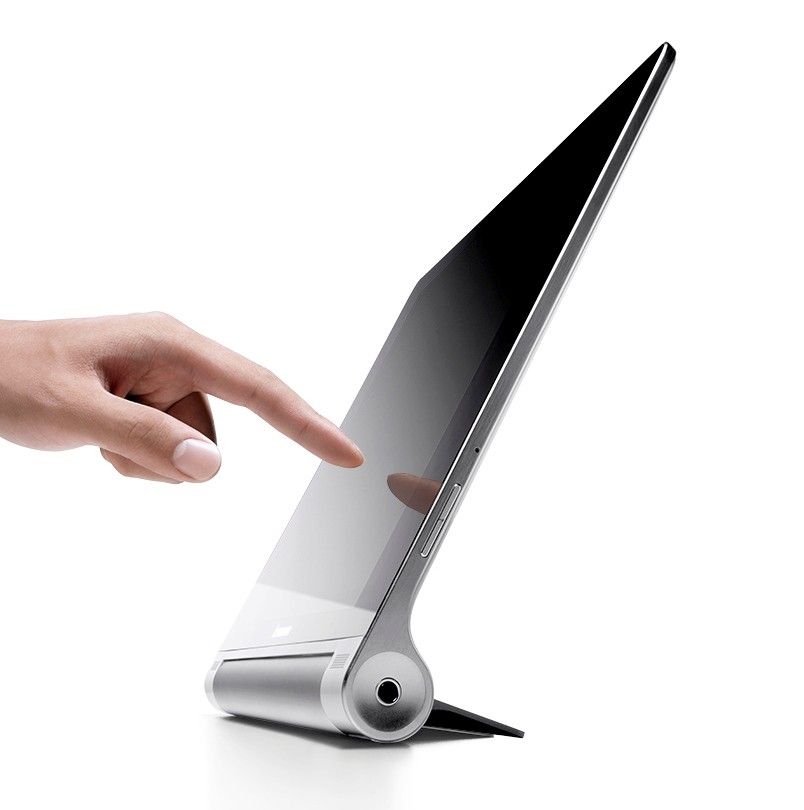
Lenovo Yoga Tablet -- a better way is here
When it comes to Android tablets, they are all rather ho-hum; big rectangular slabs. In an effort to use them comfortably as a display or for watching a movie, clunky cases and folios must be purchased in order to prop them up. Sure, you can lean it against something and hope it doesn't fall over, but that is risky business.
Lenovo feels the pain of Android users and has created a new solution -- a better way, if you will. The company has been teasing a device for three weeks now, but it is finally unveiled. Meet the all-new Lenovo Yoga Tablet.

Microsoft Remote Desktop -- over one million downloads on Android, iOS and Mac
It was only two weeks ago that Microsoft shocked the world and made Microsoft Remote Desktop a cross-platform affair. Today, Microsoft shocks us again and announces that over one million people have downloaded the app.
In other words, over a million people found OS X or their mobile devices to be insufficient in meeting their needs. After all, if a user can satisfactorily accomplish one-hundred percent of their needs on an iPad or Android tablet, there would be no reason to download the app and connect to a Windows machine.
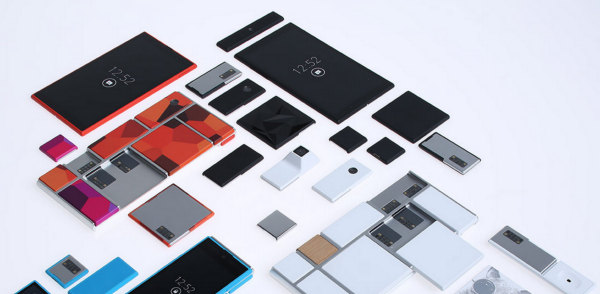
Motorola announces Project Ara -- a build-it-yourself, modular smartphone
It looks as though Motorola may be making it a little easier to buy the perfect smartphone. The Google company is taking mobile devices in something of a new direction, and all is revealed in a post on the Motorola blog. The company plans to do something new by developing "a free, open hardware platform for creating highly modular smartphones" -- a click together phone, if you will.
So what's the idea? You know how you find the perfect phone but it has a camera that you just know you'll never use? You feel like you're paying for something unnecessary right? Or you find a phone you like but the battery doesn’t last quite long enough? Problems like this could become a thing of the past with Project Ara.
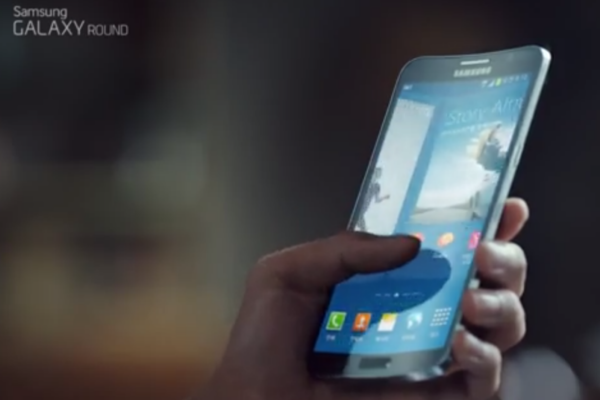
Samsung shows off its curves in new Galaxy Round ad
Flat screens are so yesterday; curves are where it is at these days. Not content with constantly increasing the size of phone displays, handset manufacturers are now looking for a new twist. Both LG and Samsung have decided that curves are the way ahead. LG has officially announced the G Flex following on from the Galaxy Round that was revealed by Samsung just a few weeks ago, but it is the Samsung handset that is highlighted in a new ad.
As the Galaxy Round is destined for the Korean market, it should come as no surprise that the commercial is in Korean. This matters little as the looks of the phone speak for themselves. The advertisement demonstrates various curved objects that sit neatly in the hand to highlight that a great design decision has been made. Oddly, most of the objects shown -- an egg, a hand, a lemon, a glass -- are convex in curvature, so it's not really a direct comparison with how the handset will sit in the palm.
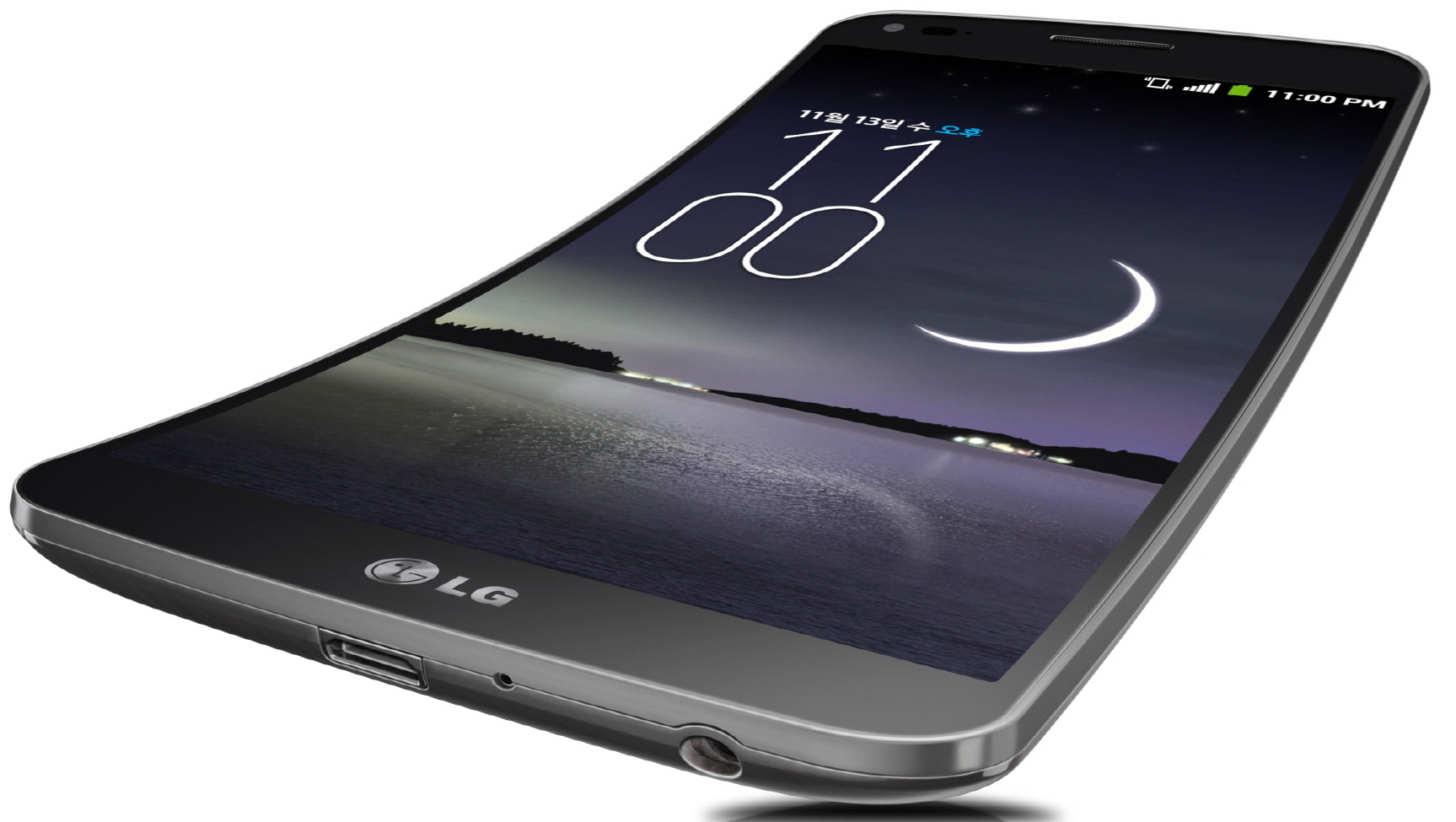
LG takes a stab at Samsung with its new 'real' curved smartphone
When Samsung announced the Galaxy Round, the company's first smartphone with a curved display, many folks (myself included) struggled to see the real-life benefit that such a form factor would allegedly bring. The natural direction for the curve is considered to be on the long side, and not on the short one as the Galaxy Round has it. The rather gimmicky Roll Effect feature, that shows users some information when tilting the device, did not add more credibility to the touted benefits of the Galaxy Round either.
Rival Android maker LG has also announced its first smartphone with a curved display, that is called G Flex. The company markets it as the "world's first 'real' curved smartphone", in a (clever) attempt to take advantage of the negative feedback that the Galaxy Round has received so far.

BBM rakes in more than 10 million downloads during the first 24 hours
I will admit to being intrigued by BBM. I have never owned a BlackBerry smartphone (nor do I have plans to buy one) so I have never had the chance to find out what all the fuss is about. But, after the Canadian maker revealed that the service will also arrive on Android and iPhone, my interest piqued.
And I am definitely not the only one who is interested. Following the second release on rival platforms, in its first 24 hours on Apple App Store and Google Play BBM surpassed 10 million downloads, which is impressive for a service that only had 60 million users before the second half of the year.
